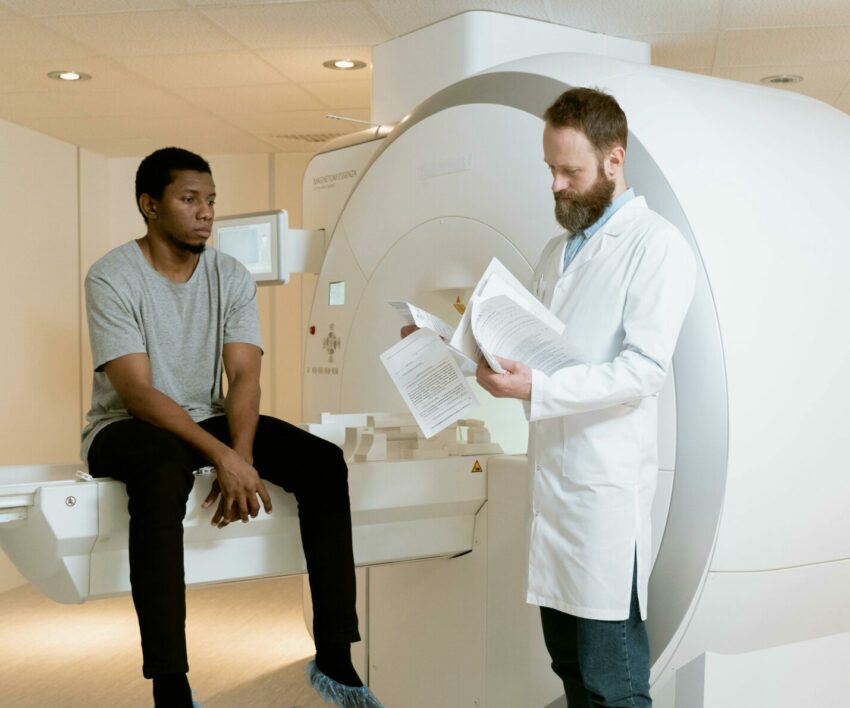
Taking care of your reproductive health is important as that is the most delicate part of your being. You want to make sure that there are no complications that might affect your overall health in the long run, that is why as a man, you would be encouraged to consistently visit your urologist.
One of the diseases that affect a man’s reproductive health, according to Mayo Clinic is testicular cancer. This is a rare but treatable cancer, that originates from the testicles, responsible for producing sperm and testosterone. It is said to typically occur between the ages of 15 and 45 and presents as a bump or lump on the testicle that can spread to other parts of the body.
The above clinic continues to mention that this type of cancer may include symptoms such as swelling in the testicles, heaviness in the scrotum, discomfort in the lower belly or groin, breast tissue enlargement, and back pain.
NHS explains that the causes of this are often as a result of the following factors:
“You have or had undescended testicles (when one or both testicles do not drop down into the usual place in the scrotum), your brother or father has had testicular cancer, you’ve had testicular cancer before, you have or had a condition called hypospadias where the hole that pee and sperm comes out of (urethra) is not at the tip of your penis or you have HIV or AIDS.”
The Cleveland Clinic advises that as a man, you need to familiarise yourself with testicular self-examination (TSE), which is a method to check the appearance and feel of testicles, allowing for easy detection of potential problems like testicular cancer. “Conducting a TSE at least once a month is good practice. A healthcare provider should examine your testicles at least once a year.”
When performing the self-exam, Cleveland advises that you follow these steps:
- Lift the penis and visually inspect the scrotum
- Grip the top of the scrotum and locate one testicle
- Examine the spermatic cord, which supplies blood
- Roll the testicle between fingers, examining each side from top to bottom
- Examine epididymis, a soft, squishy tube carrying sperm
- “Repeat these steps with your other testicle. It’s uncommon to have testicular cancer in both testicles at the same time. If you’re unsure whether a testicle feels abnormal, you can compare it to the other.”
Also see: 5 Important nutrients for men’s health




